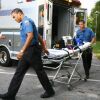On the Inside EMS podcast co-hosts Chris Cebollero and Kelly Grayson discussed the importance of knowing where you are going when responding to an emergency. They debated the reliance of some medics, especially younger medics, on GPS.
We asked EMS1 readers to share their thoughts on Facebook. Is it OK for medics not to learn the streets and solely rely on GPS?
Listen to the podcast and let us know what you think in the comments!
Posted by EMS1 on Wednesday, October 7, 2015
Sometimes GPS is the only way
“This is my “Normal” coverage area; 500 square miles, split between 3 rotating trucks. By all means, tell me how you remember every single road within 500sq miles (not to mention the roads that are going up in parts of the county you don’t go often/subdivisions). If I was just in one city (we encompass 4 cities) where’s there are landmarks, it would be easy, but turn left at the pine tree isn’t really directions. Welcome to Rural EMS.
Oh, that doesn’t include the other 4 counties we have to assist with if the other trucks get overwhelmed. GPS will get you close - use common sense also.” — Frank Castle
“It is nearly impossible to know your entire coverage area. What if you end up on a mutual aid call well out of your local? I have been doing this stuff for years, well before GPS was available. I still go to the map book sometimes to be sure. I knew all about GPS and used it in the Army, but you had to master land navigation with a map and compass first. Sometimes the GPS unit would be taken away and we still got where we were going. Just like any gadget, you have to be ready to work without it, because it can go down anytime. Developing a dependence on any gadget is trouble.” — Russell B. Stevens IV
“GPS and updated map books are the way to go, especially in rural settings. I was lucky to have a retired sheriff deputy as a partner once. He had worked the county for almost 30 years and knew pretty much any road in the county. There were many times though we were in another county running calls and had to rely on GPS and a map book. We’d put the address in GPS to get us headed in the right direction and use the map book for more detailed information for the roads. Like others have said, it is another tool to use.” — Terry Turner
“GPS saves lives, your response time is faster. Especially in larger areas, no one can know every street especially with new subdivision building built. Or try to find a oil field location in Texas.” — William Davidson
A useful tool, but don’t rely too much on it
“GPS should be like the monitor and pulse ox, a tool, to help, but not the be all end all.” — Patrick Cooper
“Map reading skills and knowledge of your response area are important to the job we do. Being able to use a GPS, or Google Maps on a smart phone, is equally important. Tools on your belt, or cards in your hand. Use them all wisely.” — Andrew Denmon
“We have a GPS, but we are required to memorize our area and have a road test after 1 year. I don’t live in the county that I work in, but, I worked in the surrounding counties and know them pretty well in case of mutual aid. Nice to have a GPS just in case, but I started this job before GPS and did just fine.” — Melissa Parker
“I agree know your streets. But that takes time. GPS is just a tool to help. Have you seen the huge subdivisions bigger than cities.” — Hal Fischer
“GPS is only a tool. It may get you to the area, but not to the exact location. You still need to read the signs along the way.” — Gary Bishop Sr.
“Just another tool in the box....like anything else you need to know the limitations of that tool.” — Amy Kenna Krueger
You need to know the streets
“To be a good medic you have got to know your streets. GPS is great but it’s no substitute, not always reliable.” — Timothy Ray
“Considering my GPS told me to drive into a river- NO.” — Trevor Waters
“Well I guess I get to be the old fart who says, “back in my day we didn’t have GPS or computers and we made our times” because it’s true. The MDT goes down a lot so if you depend on it you’re screwed. There is no substitute for knowing the streets.” — Robert B. Reno
“You should know your area. Technology fails. You need to be able to get to a call.” — Lisa Robinson
“I haven’t listened to the podcast, but to answer the headline - NO! Learn your area backward and forward twice and if that doesn’t work, learn to read a handy-map, it’s not rocket science. North is up!” — Mike Doss
“I fight this all the time. It’s a tool in the toolbox. There is no reason to not know main roads. Will you know every little side street? Maybe. When I worked in a city that was 2.9 sq mi yep I did after 6mos or so. Now I can go anywhere in a county. I know main roads and can get us pointed in the right direction. Then follow up with the online map to navigate the side streets. I have crews that have multiple years in the county that don’t know main roads and won’t move till madam gps tells them.” — Robert Lindahl












